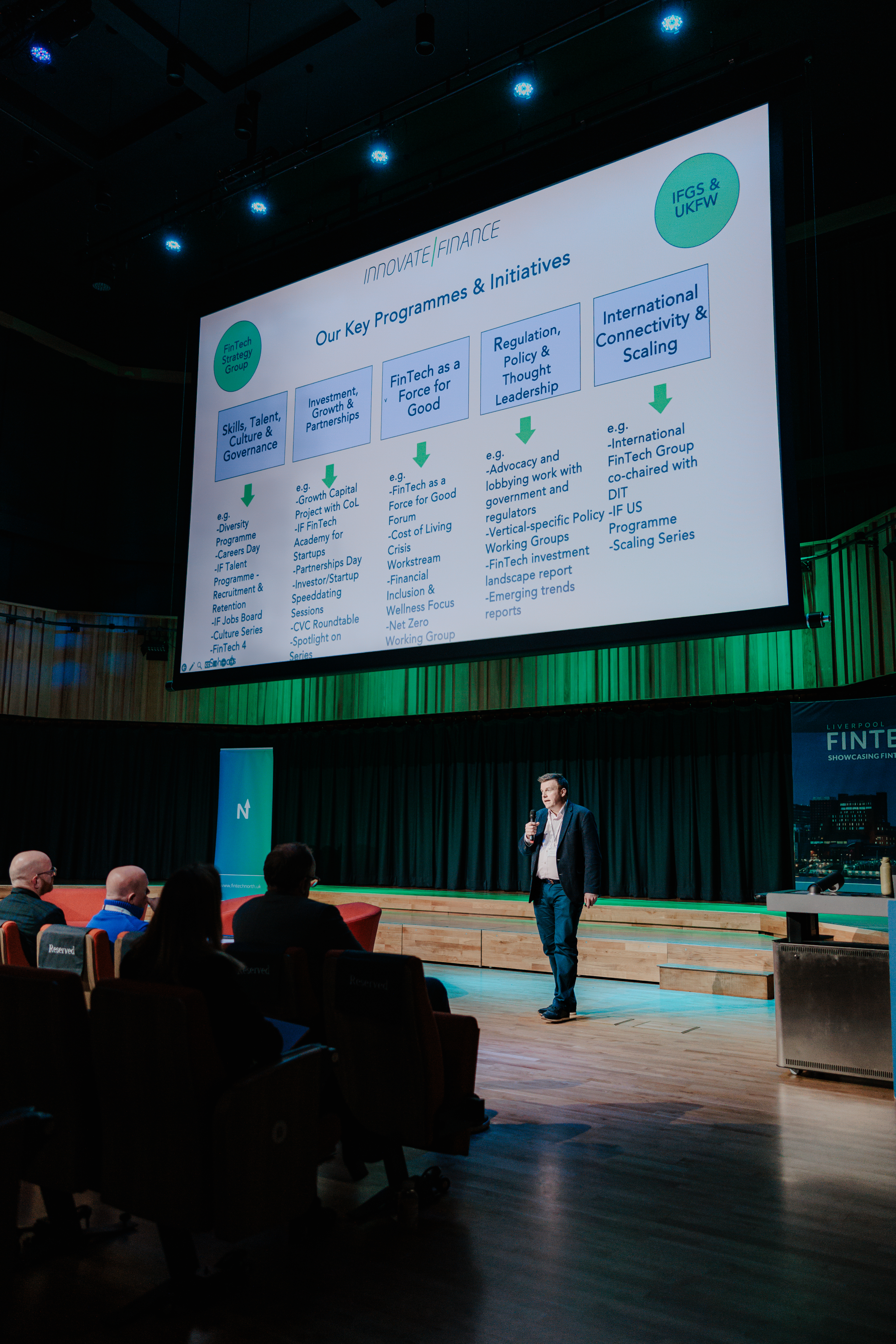
Learn about how we use TrustPilot and other resources to support the firms online reputation management.
- Manager, Course creator, Teacher: Kylie Greeff
This glossary provides a quick lookup to definitions and the FCA Handbook. Please update according to changes in policy.

Learn about how we use TrustPilot and other resources to support the firms online reputation management.

This course is designed for the Customer Success Manager.

Learn how to manage a portfolio of assets to achieve your objectives.

This course describes the process for designing, developing and testing a new product innovation. Most documents connected with product design are saved on SharePoint at this location: Product Review



This course includes some final onboarding steps for the hiring of new candidates.

This course aims to assist new staff with onboarding. It helps to familiarise them with the industry, team, platform, culture, stakeholders and more. We aim to keep this content in sync with the content on the Wiki.

How did the industry start and evolve, who are the main actors, and how has it been affected by regulation, market failures, public sentiment, etc?

This course introduces the main resources used in the marketing department.

Learn about the systems and applications used by the business. The assignments in this course are generally limited to obtaining access to the relevant system. There are separate lessons in development for each application, however, this course is about getting you set up.

This course will take you through induction-level compliance training by introducing you to the regulatory principles, and the compliance requirements applicable to the firm. All staff must undergo this compliance induction training in the first few weeks of joining the firm.
The follow on course is Compliance Fundamentals which all staff are expected to complete within their probationary period.

A trade association exist to support members from a specific industry to collaborate toward achieving mutual objectives. Activities include Lobbying, Research, Marketing, Networking, and Education relevant to the industry.
In this course, we will look at the associations: UKCFA, European Crowdfunding Network, Fintech Alliance, Innovate Finance, and the Federation of Small Businesses.
It is important you understand which associations the firm is a member of and how it engages with them. Trade Associations often run as a consortium of organisations, so understanding the key influential board members is also important.

This course will prepare you for taking on a customer service role within rebuildingsociety.


This course introduces you to rebuildingsociety.com, and prepares you for your role within the finance department.

Learn how to prepare and submit:

This course will equip you with the knowledge and skills to explore and understand the intricacies of blockchain technology, specifically focusing on analysing transactions and uncovering valuable insights.
Target Audience:
Course Goals:

Learn how the regulatory classifies the different types of cryptoassets according to PS23/6: Financial promotion rules for cryptoassets and how this aligns with the rules in connection with RMMI. Topics include:

Learn how to review and approve Financial Promotions (FP) in a variety of different mediums to ensure they carry the appropriate risk warnings and are clear, fair, and not misleading. Remember to review in a constructive manner that trains staff (or 3rd parties) to get it right. Topics include:

This course will develop your understanding of the compliance requirements, policies, systems and controls used by the firm.
You will be required to go through each module and where necessary complete short understanding and competency tests. Some tests are internally developed whereas others may refer you to a third-party system for lessons, tests, and certification.



Learn about the firm's financial products.

This Course brings together various lessons regarding the processing of loans.

This course includes training to support loan application processing and pre-operations. From taking an inquiry to handing over a completed application to the ops team for review and processing.

This course covers various aspects of financial crime, from high-tech hacks to old-fashioned fraud. Unfortunately, the crypto industry is rife with financial crime. Staff must demonstrate an understanding of the various threats and acquire knowledge that assists with mitigating such risks.

This course covers various competencies in respect of undertaking an analysis and evaluation on a 3rd party. This could be a partner, prospective customer or key investor.
As part of the firm's Risk Management strategy, it works with various 3rd parties to analyse and evaluate the risks of working with various partners.


This course covers credit risk analysis training. It provides the core competencies necessary before onboarding to the credit risk committee.


Key developer training is provided to help new developers get up to speed quickly.

Many online business models rely on technology to operate. For example, retailers use e-commerce software like Magento, or Spotify to setup and operate an online shop to sell products.
This course will look at the different types of crowdfunding and the different levels of software that facilitate setting up a crowdfunding platform. We will also look at what the technology does not do and what must be configured for the system to operate.
We will also look at some of our competitors, to better understand their offering.

This course will take you through everything you need to know to run a financial platform using White Label Crowdfunding's technology platform. This course is essential for all platform operators.
It covers the basic concepts of how the platform works, as well as providing practical training on using the core features.
There are additional courses for all of the platform modules you may be using.

This course will prepare you for working on client projects as a project manager with White Label Crowdfunding.

Learn about the sales processes and how to give a great demo! Please complete the course: "Intro to crowdfunding tech" first.


This course explains our approach to homeworking and homeworking requests by those who work for us.
We believe there can be real benefits to enabling our staff to work from home, where the full circumstances of our business requirements and individual staff member’s particular situations and roles and responsibilities can accommodate this.

White Label Crowdfunding Limited (hereinafter referred to as the “Company”) has an extensive and robust Information Security Program that consists of a vast array of policies, procedures, controls, and measures. This Information Security Course is the foundation of this program and ties together all other policies as they relate to information security and data protection.
The Company Information Security Course covers all aspects of how we identify, secure, manage, use, and dispose of information and physical assets as well as acceptable use protocols, remote access, password, and encryptions. To ensure that the importance of each information security area is not missed or vague, we use separate policies and procedures for each information security area and where applicable, reference these external policies in this document.
All information security courses, policies, and procedures should be taken, read and referred to in conjunction with each other, as their meaning, controls, and measures often overlap. In addition to our Information Security Program, we utilise the below courses to inform our information security controls: -
Risk Management Course
Business Continuity Plan
Third Party/Outsourcing Course
Due Diligence Course & Questionnaire
Data Retention & Erasure Course.
Data Protection Course
The Company is committed to preserving the Information Security of all physical, electronic, and intangible information assets across the business, including, but not limited to all operations and activities.
We aim to provide information and physical security to: -
Protect customer, third party and client data
Preserve the integrity of the Company and our reputation
Comply with legal, statutory, regulatory, and contractual compliance
Ensure business continuity and minimum disruption
Minimise and mitigate business risk

White Label Crowdfunding Limited (hereinafter referred to as the “Company”) utilises host based and boundary firewalls to protect its devices, networks, property, staff and customers. We understand the importance of effective protective measures and recognise our obligation to set up such firewalls to enable maximum protection and include effective firewall rules.
The boundary firewall is essential in mitigating the risks associated with loss or threats to our information and business and we utilise government and expert guidelines and requirements for setting up the rules and parameters that define the firewall.
We also use host-based firewalls on all devices to ensure a double layered protective approach. This allows for tailored rules and configuration on specific devices and the ability to protect that device and therefore the information it contains or accesses wherever it is used.


Asset Management is the process of identifying, classifying, managing, recording, and coordinating WLCF assets (IT and information) to ensure their security and the continued protection of any confidential data they store or give access to.

It
is our responsibility to protect and secure our information and systems and we take
this function very seriously. We have developed and implemented several
physical, logical, and procedural measures and controls to enforce our
approach. We understand that it is vital to protect the systems and information
held and used by us from unauthorised use or access and are fully aware of how
unauthorised access can affect security, personal information, and individuals.


WLCF is committed to protecting clients' personal and financial privacy. This privacy policy course describes the information we collect, how we use it, and customer rights to control it.
By accessing and engaging with the site, the clients confirm that they have read and accepted the privacy policy. Furthermore, WLCF may change the content or services found on our website at any time without notice.

This course should be taken in conjunction with our other information security courses and data protection protocols and measures for a complete approach to securing and protecting personal information.
The Company recognises that email is a necessary and standard way to communicate in business and makes up an essential part of the Company's communication with other employees, third parties, and our customers.
Like all forms of technology the Company uses, email can pose security or business risks if used or set up incorrectly or inappropriately. This email policy course sets out our approach and expectations for the safe and secure use of email throughout the Company and provides guidelines on good email etiquette for those using and accessing email.